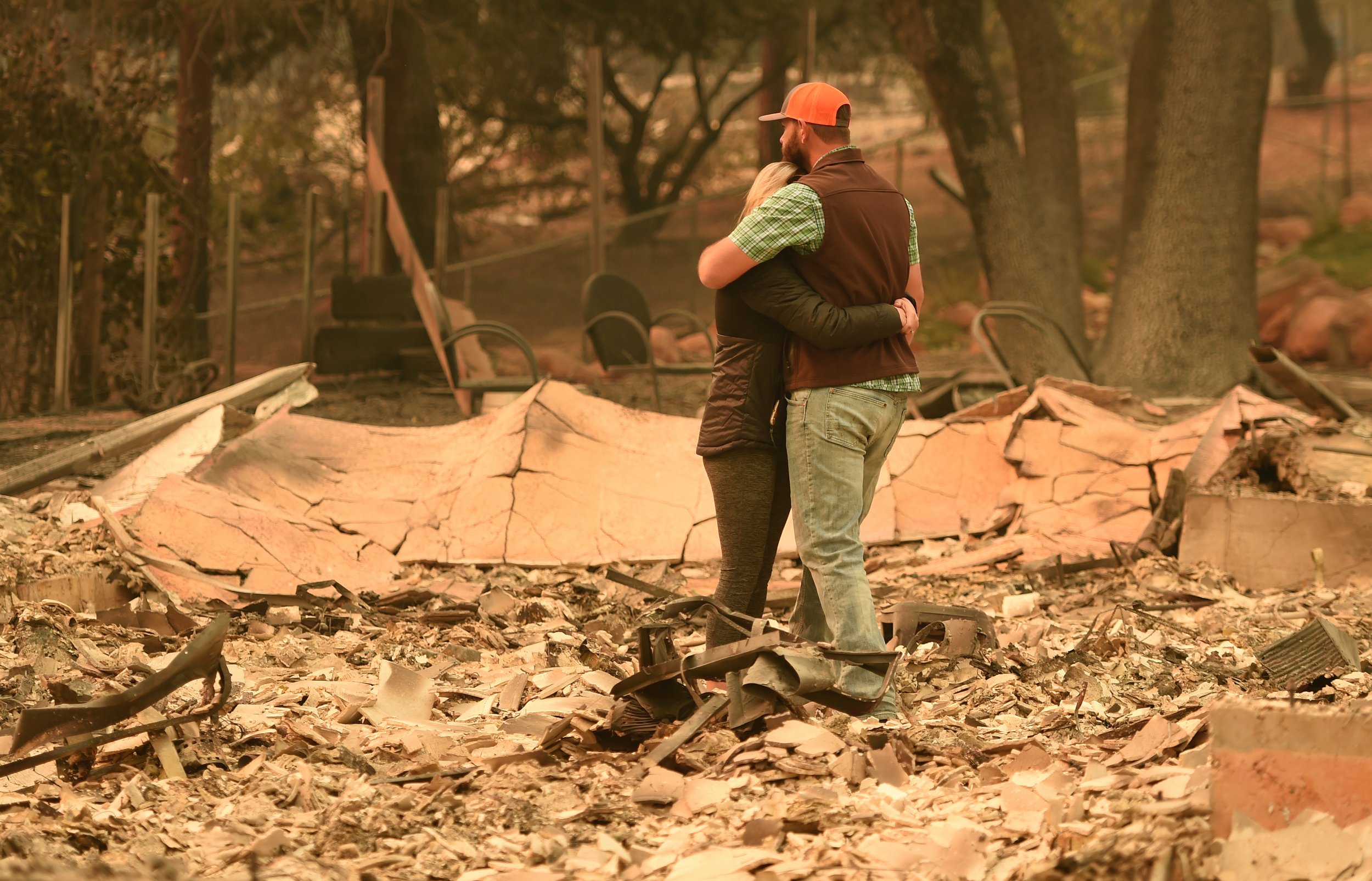Gambling On Calamity: The Los Angeles Wildfires And The Ethics Of Disaster Betting

Table of Contents
The Reality of Disaster Betting Markets
Disaster betting encompasses wagering on various aspects of a natural disaster's impact. In the context of the LA wildfires, this could involve betting on the total acreage burned, the number of homes destroyed, the number of evacuations ordered, or even the total value of insurance claims filed. While concrete examples of specific betting markets directly tied to the LA wildfires may be difficult to publicly verify due to the secretive nature of these operations, the existence of such markets is a disturbing reality.
- Defining Disaster Betting: Disaster betting involves placing bets on the predicted severity or specific outcomes of a natural disaster, such as wildfires, hurricanes, or earthquakes. This differs from traditional gambling as it directly profits from human suffering and loss.
- Wildfire Betting Markets: Hypothetical markets might include betting on the total acres burned (over/under a certain number), the number of structures destroyed in specific neighborhoods, or the length of time evacuation orders remain in effect. The odds would fluctuate based on real-time data and meteorological forecasts.
- Mechanics of Disaster Betting: These markets often operate on unregulated online platforms, utilizing cryptocurrency or other difficult-to-trace methods of payment to avoid detection. Odds are dynamically adjusted based on the evolving situation and available information. Payouts are typically made promptly once the final impact of the disaster is assessed.
- Public Instances: While specific examples linked to the LA wildfires are hard to cite publicly due to the clandestine nature of these operations, the existence of similar markets for other major disasters suggests a disturbing trend.
The Ethical Minefield of Profiting from Tragedy
The ethical considerations surrounding disaster betting are profound and undeniable. Profiting from the immense suffering caused by wildfires is morally reprehensible.
- Victimization: Those who have lost their homes, loved ones, or livelihoods in a wildfire are already facing immense challenges. The knowledge that others are profiting from their suffering adds insult to injury, deepening their sense of injustice and vulnerability.
- Insensitivity and Lack of Empathy: Disaster betting displays a profound lack of empathy and disregard for the human cost of natural disasters. It trivializes the immense suffering experienced by victims and their families.
- Exacerbating Inequalities: Those most vulnerable to the effects of wildfires – the poor, elderly, and marginalized communities – are often the hardest hit. Disaster betting further exacerbates these existing inequalities by allowing others to profit from their plight.
- Potential for Fraud and Manipulation: The lack of regulation in these markets creates a breeding ground for fraudulent activity and market manipulation. Those with inside information or access to privileged data could exploit the system for personal gain.
The Argument Against Disaster Betting
The arguments against disaster betting are overwhelming.
- Emotional Distress to Victims: The mere knowledge that people are betting on the scale of their suffering can cause additional emotional distress to victims already grappling with unimaginable loss.
- Psychological Impact on First Responders: First responders and relief workers who dedicate their lives to aiding victims are psychologically impacted by the knowledge that others are profiting from the disaster they are trying to mitigate.
- Market Manipulation and Exploitation: The unregulated nature of these markets opens the door to manipulative betting strategies that prey on the vulnerability of victims and the uncertainty surrounding the disaster's scope.
Legal Ramifications and Regulatory Challenges
The legal status of disaster betting is complex and varies across jurisdictions. Existing gambling laws may not explicitly address this specific type of wagering, creating a regulatory gap.
- Existing Gambling Laws: Traditional gambling laws focus on established games of chance. The novel nature of disaster betting presents a challenge in applying existing legal frameworks.
- Regulating Online Markets: The decentralized and often international nature of online betting platforms makes regulation exceptionally difficult.
- Legislative Responses: New legislation is needed to specifically address disaster betting, clarifying its illegality and establishing mechanisms for enforcement.
- Social Media's Role: Social media platforms can unwittingly facilitate disaster betting by providing spaces for discussion and the dissemination of information that could be used to inform betting strategies.
The Role of Media and Public Awareness
Media coverage plays a critical role in shaping public perception of disaster betting. Responsible reporting is crucial in preventing the normalization of this unethical practice.
- Media Responsibility: Media outlets have a responsibility to report on disaster betting ethically and accurately, highlighting its negative consequences and preventing sensationalism.
- Avoiding Sensationalism: Sensationalizing disaster betting could inadvertently contribute to its normalization and even encourage participation.
- Raising Public Awareness: Educating the public about the ethical implications of disaster betting is essential to fostering a culture of compassion and responsibility.
Conclusion
Disaster betting on events like the Los Angeles wildfires is a morally reprehensible practice. The ethical implications, legal challenges, and societal impact of profiting from tragedy are significant. We must actively challenge the normalization of disaster betting and advocate for stronger regulations and increased public awareness to protect the vulnerable during times of crisis. By understanding the ethical dimensions and potential dangers associated with gambling on calamity, we can promote responsible behavior and ensure that those affected by disasters receive support rather than exploitation. Let's work together to condemn this form of disaster betting and create a more compassionate and ethical response to tragedy.

Featured Posts
-
 Utah Jazz Vs Houston Rockets Goberts Injury Impacts The Game
May 07, 2025
Utah Jazz Vs Houston Rockets Goberts Injury Impacts The Game
May 07, 2025 -
 Rihanna Returns To Giorgio Baldi Favorite Restaurant Reopens After Wildfires
May 07, 2025
Rihanna Returns To Giorgio Baldi Favorite Restaurant Reopens After Wildfires
May 07, 2025 -
 Top 10 Hilarious April Fools Pranks Of All Time
May 07, 2025
Top 10 Hilarious April Fools Pranks Of All Time
May 07, 2025 -
 The Last Of Us Season 2 Episode 4 Production Challenges And A Week Long Shoot
May 07, 2025
The Last Of Us Season 2 Episode 4 Production Challenges And A Week Long Shoot
May 07, 2025 -
 The Warriors And Blowout Losses A Historical Analysis
May 07, 2025
The Warriors And Blowout Losses A Historical Analysis
May 07, 2025
